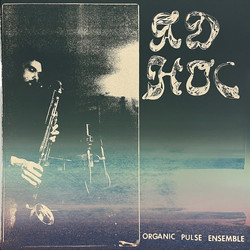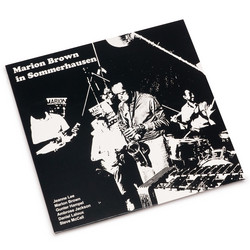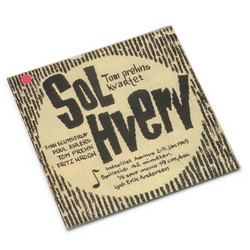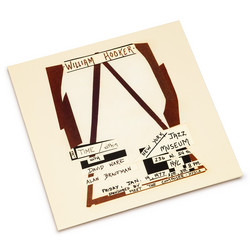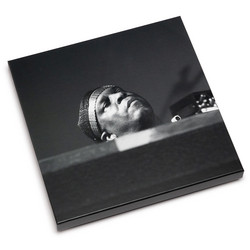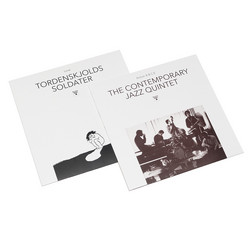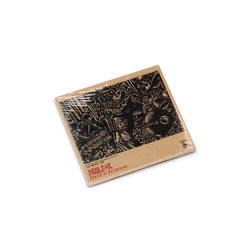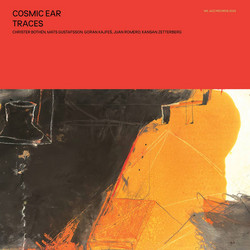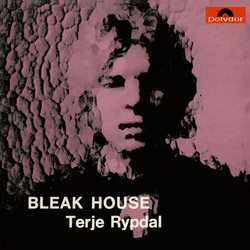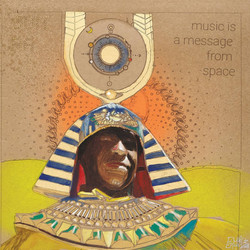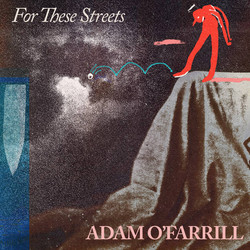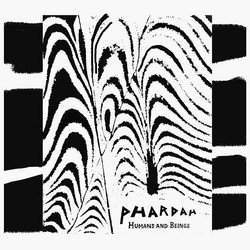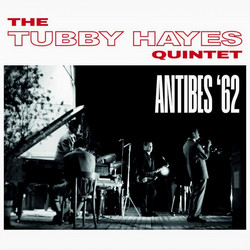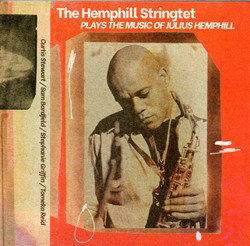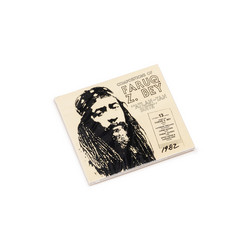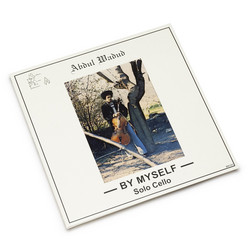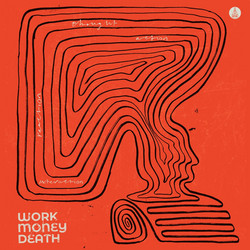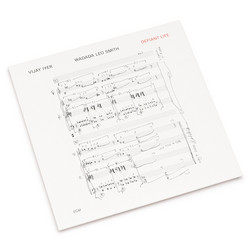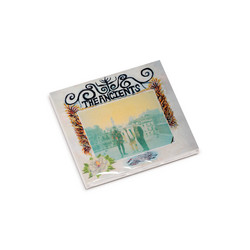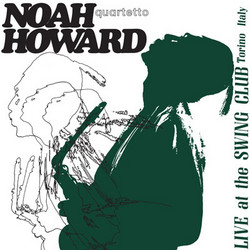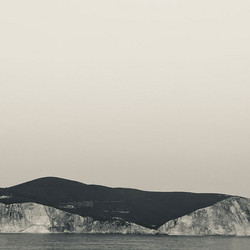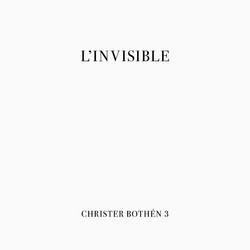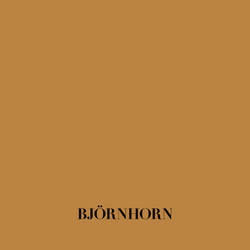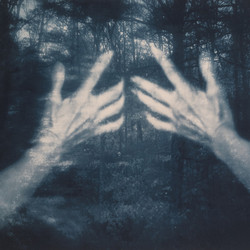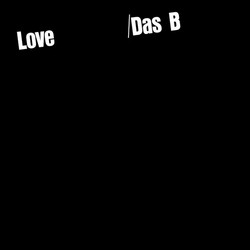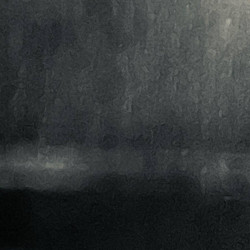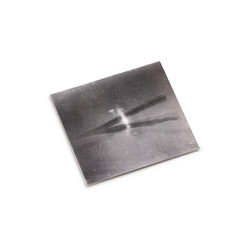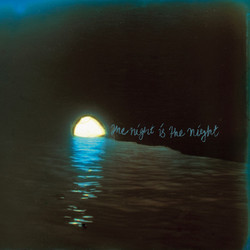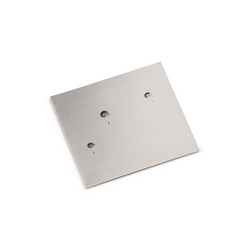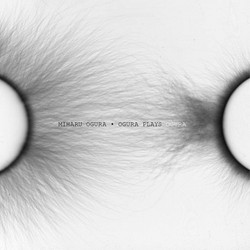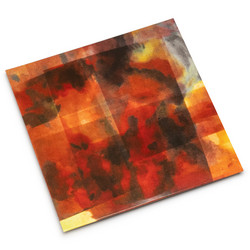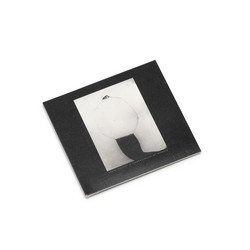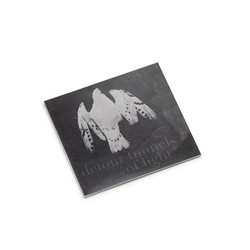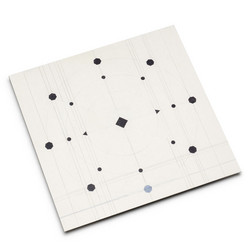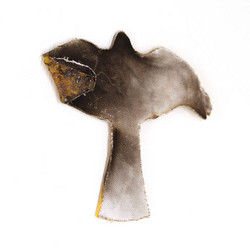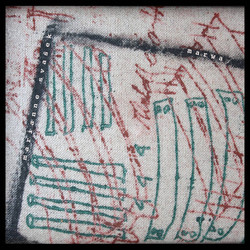Vilhelm Bromander Unfolding Orchestra
Jorden Vi Ärvde
In 2023 the Swedish bassist and composer Vilhelm Bromander turned heads with the stunning debut album of a new large ensemble, which has now adopted its name— Vilhelm Bromander Unfolding Orchestra—from that recording: In this forever unfolding moment. That album, which earned him the prestigious Gyllene Skivan and Manifest Awards, was an auspicious premiere, that braided many of the passions of the young musician, including his devotion to Indian dhrupad music, the politically charged folk-jazz sound of the music Carla Bley created for Charlie Haden’s Liberation Music Orchestra, and his commitment to close listening, where tuning with other musicians opens up new harmonic vistas. A veteran presence on the energetic Stockholm creative music scene, he eschews any divide between the pure expression in his music and the social activism of his personal choices.
The twinned directness distinguishes the ensemble’s riveting second album Jorden vi ärvde (“the earth we inherited”), which both reflects on the alarming state of our planet while simultaneously delivering the urgent reminder that we don’t own Earth, but we merely get to spend some time here before passing it on to those to come in our wake. Bromander was inspired to compose the music following the birth of his first son, and it is dedicated to him and his little brother. “The album is an attempt to spread light, beauty, hope and resistance, and at the same time to take in the great seriousness that our time has in front of us; right-wing forces on the rise, rearmament, war and climate disasters,” explains Bromander. “We, the people of this time, seem unable to grasp the fact that our time here is on loan from future generations. But what are the consequences if we take this realization seriously and let it influence the way we live our lives? And how can we find the power and hope to change?”
Our world seems on fire, with hope in short supply, which makes this latest transmission from Bromander all the more valuable. The music conveys a deep-seated trust in humanity even as it raises alarms about our degradation of the planet. Rather than succumbing to depression and futility, the music draws attention to the beauty and spirituality that captures humanity at its best. The composer sees that sort of responsible, thoughtful stewardship applying art’s rich history, too, particularly through the lens of its most conscientious practitioners. “It is an attempt to summon the courage, dreams and visions that previous generations of musicians and artists have shown and given us, with a hope to continue working in the same radical spirit.”
The album reveals Bromander’s heightened confidence and burnished facility for writing and arranging for a large band. The music sinks deeper into jazz tradition than its predecessor, while enlisting the ensemble’s stunning cast of musicians to contrast with the meticulously arranged charts, which are not only forever unfolding, but patiently unfolding.
Pianist Alex Zethson introduces a ravishing theme on “Jorden vi ärvde, den skall oss också ärvas,” prying open its beauty with his measured phrasing before Bromander and the legendary bass clarinetist Christer Bothén begin an almost stealthy yet conversational exploration of those contours. Slowly, gauzy arrangements begin to seep in, thickening and evolving into a lush, sweeping propulsion punctuated by a lyrical improvisation from vibraphonist Mattias Ståhl and a tuneful trumpet statement by Emil Strandberg, the latter lifted up the dynamic interplay of drummers Anton Jonsson and Dennis Egberth, who are rejoined by the full orchestra to shepherd the piece toward its elegant recapitulation.
Bromander acknowledges a debt to the Liberation Music Orchestra on his full-bodied ballad “Erde,” which opens with the delicate metallic interplay of the drummers, haloed by sparse, shimmering daubs, before Zethson and the bassist continues large with an astonishing duo passage. The tune underlines the most basic thrust of the album: Bromander calls it “an elegiac fight song,” evoking a battle that’s more mystical than violent. His masterful arrangements simultaneously draw upon the ensemble’s ability to produce the most transcendent, gossamer textures and melodic shapes.
Tenor saxophonist Elin Forkelid boldly takes up the mantle of Dewey Redman, the namesake reedist behind “For Dewey,” which Bromander considers an homage to the elastic beauty achieved by pianist Keith Jarrett’s classic quartet with Redman, Charlie Haden, and Paul Motian. It’s on this triumphant wonder that the bandleader fully displays his knack for orchestration, using his ensemble to produce gorgeous chordal swells, interlocking riffs, and extended improvisation courtesy of Ståhl. The album concludes with “Calliope,” which touches on Bromander’s deep engagement with Indian classical tradition. He calls it “a raga-inspired song where the harp acts as our swarmandal, establishing the tonality,” referring to the zither-like Indian instrument. The multipartite wonder contains a slew of deftly synchronized moving parts, a feast of shifting polyrhythms and changing timbres that cushion jaw-dropping solos from Bothén and saxophonist Martin Küchen, and a hushed benediction from violinist Katt Hernandez.
“The music on this album continues to explore similar themes as In this forever unfolding moment but in comparison, the music presented here is more through-composed,” explains Bromander. “I have sought a directness, where the music is felt and burns. Where there is a presence and a mystery.” On those terms there’s no question he has succeeded, building on his past achievement to create something new that envelops the listener, soothing us even as it calls out for action.

